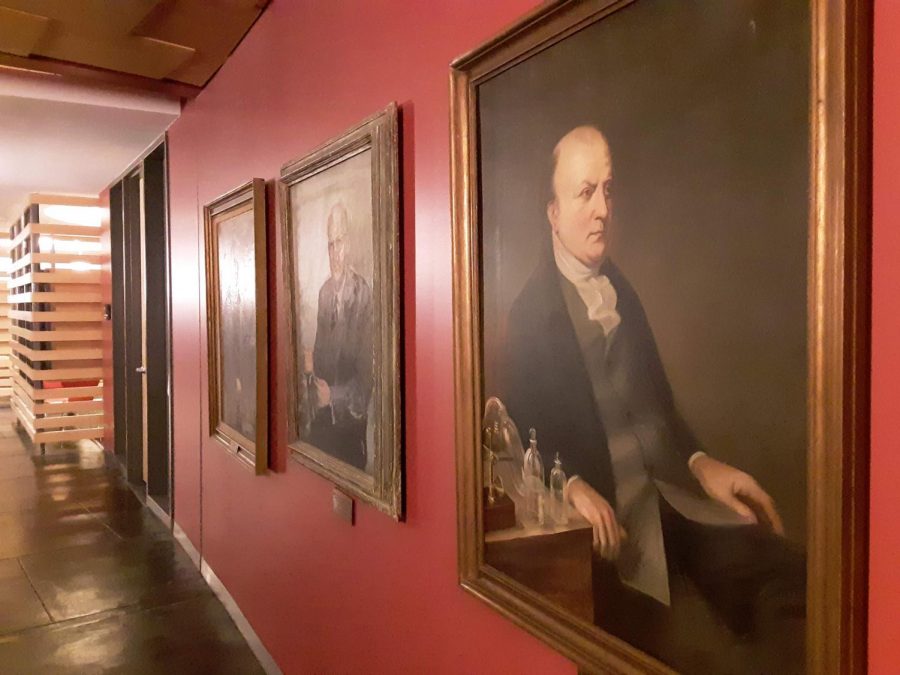Student Senate Motions to Change Cooper Hall Name
Cooper Residence Hall is named after a former slave-owner, and a group of student senators is compiling a short-list of black alumni whose names could take Cooper’s place.
“This was sparked by the incidents that have taken place on campus both the response to Leda Fisher’s[’19] op-ed piece, as well as the blackface incident last year,” said Keson Bullock-Brown ’19, Student Senate director of inclusivity, who is leading an initiative in senate to come up with new names for the dorm.
An opinion column published in The Dickinsonian on Feb. 7, 2019 entitled “Should White Boys Still be Allowed to Talk?” garnered strong reactions throughout the campus community and widespread public backlash. On Halloween weekend in 2017, a student was alleged to be in blackface while in a Colin Kaepernick costume, which included another student allegedly pointing a gun at the costumed student’s head.
Cooper residence hall is named after scientist Thomas Cooper, who served on Dickinson’s faculty from 1811 to 1815. In 1821 he took up the post as president of South Carolina College and over the next decade became a slaveholder and defender of slavery. Soon, he “emerged as one of the most influential pro-slavery ideologues of the nineteenth century,” according to Dickinson’s House Divided website.
“There is also a portrait of Cooper in the college’s Rector Science Center,” according to the House Divided website, “yet Dickinson currently makes no mention of Cooper’s later prominence” as an advocate of slavery. Neither the Dickinson College Archives page on Cooper, which was posted in 2005, nor the Traditional Residence Halls page on Cooper Hall include that Cooper was a slaveowner.
This year, Dickinson joined other American colleges and universities in the House Divided project, which works to reexamine these institutions’ connections to slavery, according to their website. In February, an exhibit titled “Dickinson and Slavery” opened at the House Divided building at 61 N. West St. The exhibit explores Dickinson’s ties to slavery and prompted Bullock-Brown’s initiative.
With “House Divided in their research with Dickinson in Slavery, [that’s] where I really began to think about how the college could begin to address the concerns of students on campus as well as the long history this college has with slavery,” said Bullock-Brown.
Bullock-Brown and members of the Student Senate Inclusivity Initiatives Committee Rebecca Maslanka ’21 and JC Sosa-Soto ’21, introduced the idea to change Cooper Hall’s name about three weeks ago in Student Senate. “The Inclusivity Initiatives Committee recognized the problematic history that Cooper Hall is connected to and the man it commemorates,” Maslanka said.
“Our goal is to rename the dorm after an alumnus of color who has made a positive change both on and off our campus,” Maslanka said. “We have done some primary research to present the Senate with some initial individuals that we feel should be remembered by our community.”
The senators have proposed a few candidates for re-naming: John Robert Paul Brock, Clarence Muse and Komozi Woodard.
“After getting senate’s involvement we’ve been strategizing on what our next move would be, we’ve discussed approaching Residential Life as well as several faculty members so that we could gain their support,” Bullock-Brown said. “So there are many moving parts, but I can accurately state that Student Senate is fully engaged and hopeful to have this initiative actually take place.”
In order to make this change occur, “…I know that the [B]oard of [T]rustees must sign off on this initiative,” Bullock-Brown said.
Sosa-Soto said “The process [of researching potential names] is interesting; we did research both in our library and on the internet and it’s exciting to read about how these people changed the social dynamic on campus with traditions and institutions that are still alive today.”
Potential names haven’t been finalized, but Maslanka and Sosa-Soto are hoping to have their short-list by the March 26 Student Senate meeting.







Paul McCubbin • Mar 21, 2019 at 6:28 pm
I nominate my classmate and long-time Dickinson College Trustee Frank James. I can think of no finer person’s name to replace the one on Cooper Hall.